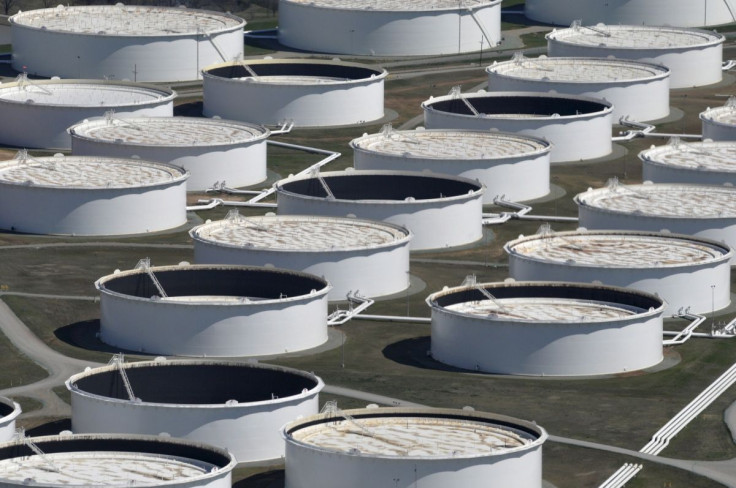Oil Prices Fall On Fears Of Aggressive Fed Rate Hike

Oil prices fell on Thursday despite forecasts for a steeper rise in energy demand, with crude turning negative on fears that the U.S. Federal Reserve will hike rates more aggressively than expected to fight inflation.
After rising more than 1% in early trade, Brent crude futures slipped 27 cents, or 0.3% to $91.26 a barrel by 1347 p.m. ET (1847 GMT). U.S. Texas Intermediate crude fell 12 cents, or 0.1% to $89.54 a barrel.
After U.S. inflation data came in on Thursday at its hottest in 40 years, St. Louis Federal Reserve Bank President James Bullard said he wants a full percentage point of interest rate hikes by July 1.
U.S. interest rates futures showed a 60% chance of a 50-basis-point hike in March meeting after Bullard's comments. U.S. stock markets fell.
The dollar gave up some of its earlier losses. A stronger greenback makes oil and other commodities more expensive for those holding other currencies.
"Prices are confused between what appears to be a strong inventory statistics and signs that the Fed is going to raise rates quicker than expected in 2022," Scott Shelton, energy specialist at United ICAP.
On Wednesday, oil prices had rallied after U.S. government data showed crude inventories fell unexpectedly last week to their lowest since October 2018, while fuel demand hit a record high.
After the inventory data, oil prices reversed a slide on that was spurred by the resumption of indirect U.S.-Iran nuclear talks a day earlier. A deal could lift U.S. sanctions on Iranian oil and ease global supply tightness.
Earlier this week, the crude benchmarks hit seven-year highs on geopolitical concerns, and as a robust demand recovery from the coronavirus pandemic has kept inventories at fuel hubs globally at multi-year lows.
"The market is truly confused here and trading erratically," Shelton said.
On Thursday, the Organization of the Petroleum Exporting Countries said in a monthly report that world oil demand might rise even more steeply this year as the global economy posts a strong recovery from the pandemic.
The report also showed OPEC undershot a pledged oil output rise in January under its pact with allies to gradually unwind record output cuts put in place in 2020.
Commodities Economist at Capital Economics said while they never expected OPEC to manage to completely unwind its production cuts this year, there was a growing risk it will produce even less than they anticipated, a key upside risk to oil price forecasts.
Overall, thin supplies of crude oil, low storage and global output that is nearing a maximum are driving up prices, according to Mitsubishi UFJ Financial Group (MUFG).
© Copyright Thomson Reuters {{Year}}. All rights reserved.





















